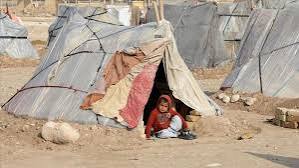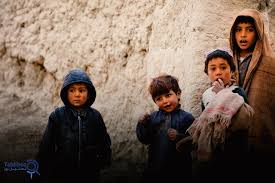What is poverty? And why is Afghanistan in the top rank of poor countries in the world?

Poverty refers to a situation in which people or communities do not have access to the minimum resources and basic facilities for a healthy and dignified life. This includes lack of income, education, health, housing and access to economic opportunities. Poverty can be absolute or relative. Absolute poverty means not being able to meet the basic needs of life such as food, clothing and housing, while relative poverty means an unfavorable economic situation compared to other people in a society or country.
The reasons why Afghanistan is in the top ranks of the world’s poor countries are:
-
Continuous wars and conflicts: Decades of internal and external wars and conflicts have had destructive effects on the country’s economy and infrastructure. These wars have destroyed the country’s resources and deprived people of access to basic facilities and services.
-
Insecurity: The conditions of insecurity and constant terrorist attacks have reduced foreign and domestic investment. Insecurity has also made many people unable to do their daily work and economic activities.
-
** Widespread corruption **: Corruption in public and private institutions is one of the important factors in increasing poverty in Afghanistan. Corruption causes that resources and financial assistance are not used properly and unfair distribution of economic resources.
-
Economy dependent on foreign aid: Afghanistan’s economy is highly dependent on international aid. Reducing or cutting off these aids can have negative effects on the country’s economy and exacerbate poverty.
-
Inefficient educational system: A weak and ineffective educational system is one of the important factors in the persistence of poverty. Lack of access to appropriate education and educational opportunities deprives people of acquiring the necessary skills and knowledge to participate effectively in the economy.
-
Lack of access to health services: The weak health system and the lack of medical facilities have caused an increase in diseases and a decrease in people’s ability to work. This issue directly affects the economy of families and society.
-
Lack of infrastructure: The lack of proper infrastructure such as roads, electricity, water and communication systems has slowed economic development and limited access to markets and economic opportunities.
-
Environment and natural resources: Climate change and environmental degradation have also influenced the increase in poverty. Droughts and other natural disasters have affected people’s livelihood resources, especially farmers.
To reduce poverty in Afghanistan, there is a need for coordinated and extensive efforts by the government, the international community, non-governmental organizations and the private sector to help improve the country’s economic situation by improving security, reducing corruption, increasing access to education and health, and developing infrastructure.

The reasons for the increase in poverty in the Taliban government
The increase in poverty during the Taliban regime is due to various reasons, some of the most important of which are:
-
Political insecurity and instability: The rise of the Taliban and the resulting political changes have led to widespread insecurity and instability in the country. This situation has reduced economic and investment activities and prevented people from working and earning money.
-
International sanctions and restrictions: After the Taliban came to power, many countries of the world and international institutions have imposed severe economic sanctions and restrictions on Afghanistan. These sanctions have limited access to financial and commercial resources and put pressure on the country’s economy.
-
Decreasing foreign aid: A large part of Afghanistan’s economy has been dependent on international aid. With these aid cuts or reductions, many development projects and public services have been shut down or reduced, which in turn has led to an increase in poverty.
-
Corruption and mismanagement: Widespread corruption and mismanagement in the Taliban government has wasted economic resources and prevented the fair and effective distribution of these resources. This problem has fueled the increase of inequality and poverty in the society.
-
Stopping women’s economic activities: The Taliban have imposed severe restrictions on women’s social and economic activities, which has removed half of the country’s potential workforce from the economic cycle and added to the poverty of households.
-
Destruction of infrastructure: Wars and conflicts have destroyed many of the country’s infrastructures. The lack of roads, electricity, water and other basic facilities has slowed economic development and limited access to markets and economic opportunities.
-
Humanitarian crises and migrations: The increase in poverty, insecurity and lack of access to basic services has caused widespread internal and external migrations. These migrations have led to more pressure on limited resources and increased poverty in the destination areas.
-
Decreased production and access to markets: Agriculture and domestic production have decreased due to insecurity and sanctions, and access to domestic and foreign markets to sell products has become difficult. This situation has led to a decrease in household income and an increase in poverty.
To improve the economic situation and reduce poverty in Afghanistan, extensive and coordinated efforts are needed from the Taliban government, the international community, non-governmental organizations and the private sector. Improving security, reducing sanctions, increasing international aid, fighting corruption, and supporting women’s participation in economic activities are among the measures that can help improve the economic situation and reduce poverty.
